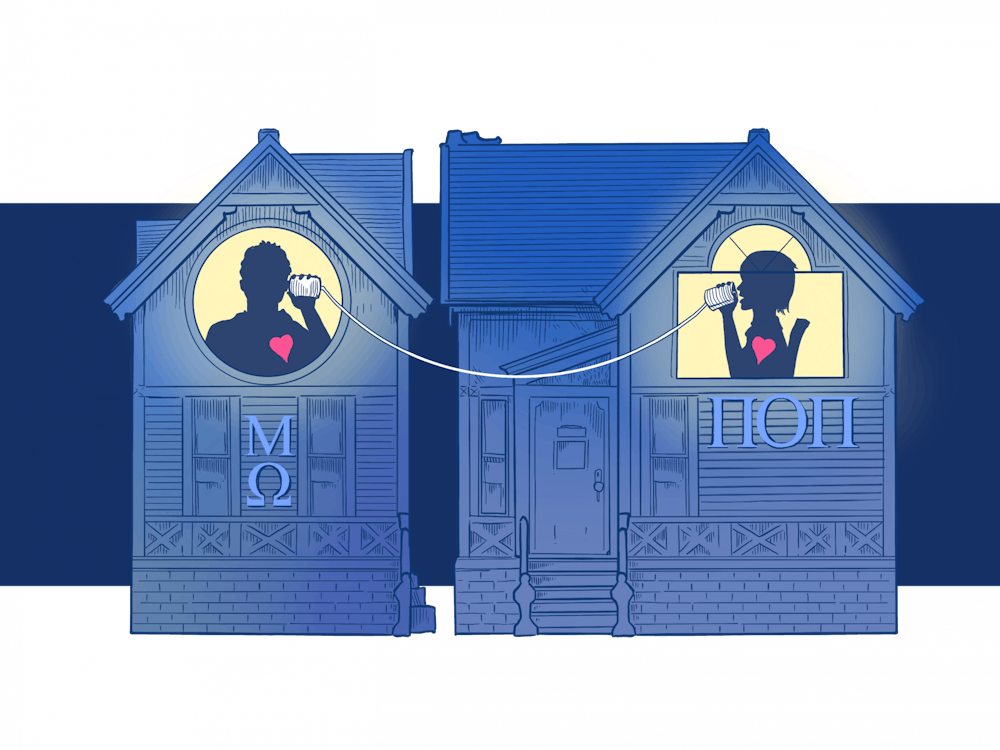
As this semester unfolds, Penn and the organizations it supervises are creating COVID-19 guidelines that are often unrealistic. While students try their best to navigate the complex maze of dos and don’ts, the University appears blind to some of the most egregious violations. If Penn hopes to have a successful semester, it must have realistic expectations of students’ actions and rightfully discipline those who violate its rules.
In an ideal world where everyone followed the Student Campus Compact, Penn’s policies would be effective in preventing the spread of COVID-19. However, after close to a year of masks, social distancing, and quarantines, students are mentally and emotionally exhausted. This is no excuse for having large gatherings, but Penn should have anticipated that some rules are simply not going to be followed and are nearly impossible to enforce.
As a student living in a greek house, I have seen firsthand some of the strict and unreasonable policies the University has put into place. For example, students were encouraged by Penn to form social pods. The rationale behind this policy is understandable; while students are exposed to some risk of contracting the virus, it is fairly mitigated as people are expected to see the same individuals and not socially venture outside of their pod. My own housemates and I have “podded” together with the understanding that since we live, eat, and do homework together, we are exposed to one another’s germs. Contradictions arose, however, when Penn’s Student Compact stated that students “must wear a facial covering whenever [they] are in physical proximity to other people (even in [their] place of residence).”
This rule sticks out to me as strange. What does Penn want? Does it want students to form pods and have some semblance of normalcy, or does it want students to feel isolated even around those they live with? Penn needs to be clearer with its expectations, and more reasonable too. The University is ignorant if it believes that people will wear masks to go and get a glass of water in their own homes.
Being an individual affected by this rule has been extremely frustrating because it feels like we are being punished more just for living on campus. In addition to the fact that this rule seems to primarily target those on campus, since it would not be feasible to monitor how people interact in off-campus houses, it is also unclear how this rule is being enforced on campus. Should we be waiting with bated breath for Penn to catch us slipping up as we do our homework at the kitchen table? Penn appears to be creating rules that are neither followed nor enforced.
Another well-intentioned but entirely unrealistic guideline also arose in response to the “Romeo and Juliet effect.” As many know, Romeo and Juliet were star-crossed lovers, prohibited from seeing one another because of their dueling families; yet, they revolted against tradition in the name of love and met with one another in secret. Had the story of Romeo and Juliet taken place in the present day at Penn, the Office of Fraternity and Sorority Life would take the place of the Montagues and Capulets, or at least, so the school says.
In a meeting with greek life house managers, OFSL explained that romantic or sexual partners were not permitted to see one another. The rationale was logical; each party is living with their own pod, but if the two parties were to meet, then those two households would be connected. However, despite the noble intentions of limiting a problem like this one, it just is not realistic. Keeping people apart from those closest to them will prove to be difficult, especially since it is difficult to enforce off campus. Instead of creating rules such as this one, the University should be focused on limiting the spread from more populous gatherings, which continue to happen.
Penn has a duty to promote and protect the health of its students, but being tunnel-visioned about disciplining the wrong people and addressing the wrong problems is not the solution. COVID-19 exposure between housemates, partners, and close friends is expected and a risk taken by students. To create guidelines and regulations that are unrealistic and isolating will just put Penn at a disadvantage, as students may be less inclined to take any of the Compact seriously. Instead of creating rules that are begging to be broken, Penn should focus on being reasonable and smart with its COVID-19 policies.
ISABELLA GLASSMAN is a College sophomore studying Philosophy, Politics, & Economics from Suffern, N.Y. Her email is iglass@sas.upenn.edu.
The Daily Pennsylvanian is an independent, student-run newspaper. Please consider making a donation to support the coverage that shapes the University. Your generosity ensures a future of strong journalism at Penn.
Donate







